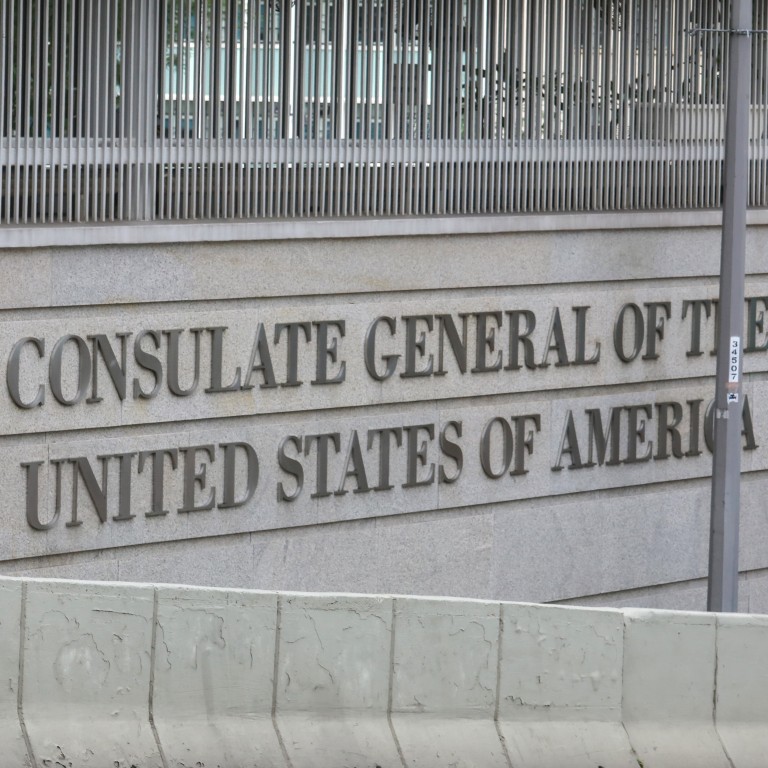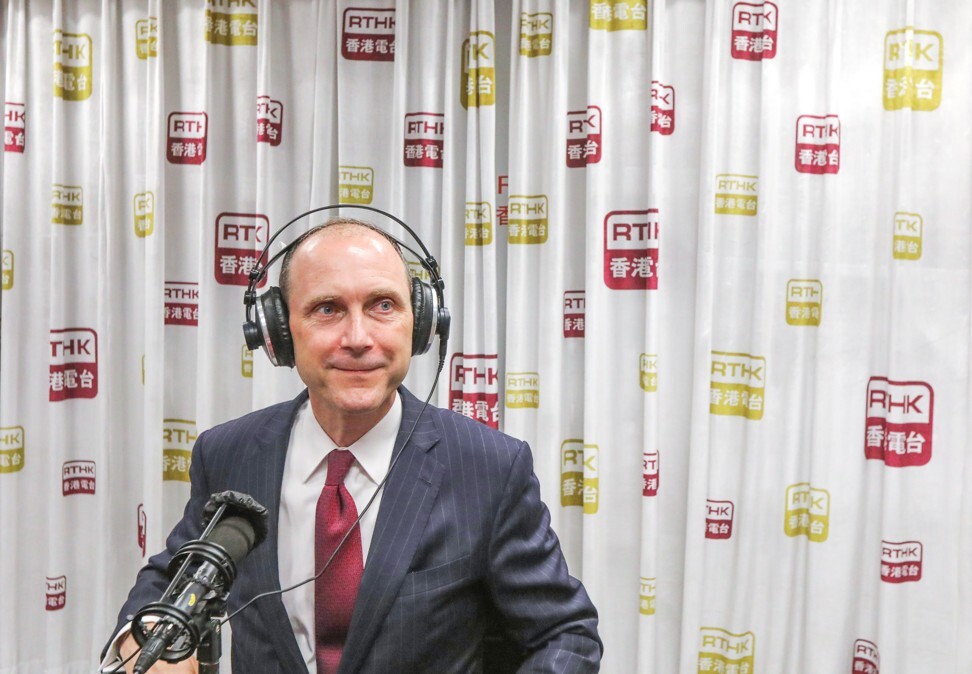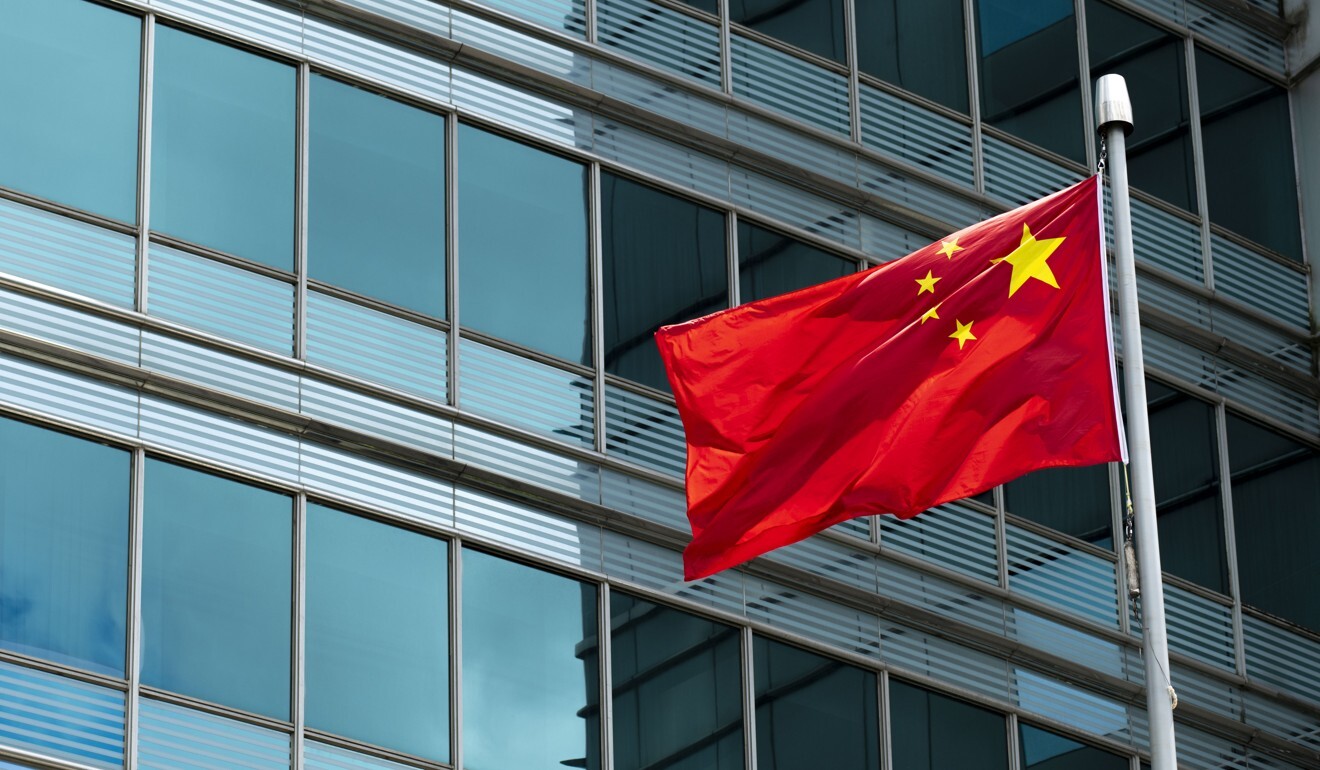
United States condemns Beijing’s new restrictions on American consul general in Hong Kong
- Washington hits back at fresh requirement for its top representative in Hong Kong to seek permission from Beijing before meeting city officials
- China and US have been engaging in a tit-for-tat imposition of diplomatic restrictions against one another
The United States consulate in Hong Kong on Tuesday slammed Beijing’s new restrictions on the activities of America’s top representative in the city, saying they disregarded individual freedoms and diplomatic norms.
The latest rule requires the consul general, currently Hanscom Smith, to obtain approval from Beijing’s foreign ministry before meeting with Hong Kong government officials or personnel from education institutions and societies.
‘I can’t speak with you’: Hong Kong officials ordered to avoid US diplomats
“The United States objects to new restrictions imposed by the [People’s Republic of China] on the official meetings of the US consul general in Hong Kong,” the statement issued on Tuesday morning read.
It said Washington was forced to introduce its own restrictions on Chinese diplomats working in the US following years of Beijing imposing barriers on its representatives in mainland China.
The consulate highlighted that the US restrictions only targeted Chinese diplomats, with staff from the Hong Kong Economic and Trade Offices in the United States still free to organise meetings without having to seek approval.

“It also points to Beijing’s failure to live up to its ‘one country, two systems’ commitment. Hong Kong has benefited for years from open discourse and the free exchange of ideas. Beijing’s effort to limit dialogue is harmful to all sides.”
The statement revealed that the new requirement to seek permission for meetings would only apply to the consul general in Hong Kong and not other US personnel, based on the diplomatic note received by the US embassy in Beijing.
It was understood the US consulate had invited at least one pan-democrat to a meeting last week, but subsequently put it on hold.

A spokesperson for the Commissioner’s Office of the Chinese Foreign Ministry in Hong Kong said in a statement on Tuesday that it firmly opposed and condemned what it characterised as the false accusations the US consulate made against China’s countermeasures applied to the US embassy and consulates on its soil.
The countermeasures were a reciprocal, necessary and legitimate response to the restrictions from the US, they added, and were aimed at urging the US to stop impeding bilateral exchanges and cooperation, and furthermore did not affect the lawful rights and freedoms enjoyed by the Hong Kong people.
The spokesman went on to urge the US to withdraw its restrictions, stop discrediting the “one country, two systems” framework and refrain meddling in Hong Kong affairs.
A spokesman for the Chief Executive’s Office, meanwhile, said the Hong Kong government “fully supports and will facilitate” the enforcement of Beijing’s countermeasures against the US.
Foreign ministry spokesman Zhao Lijian said on September 11 that Beijing would impose “reciprocal restrictions” on the US embassy and consulates on Chinese soil, including the one in Hong Kong, without giving details.
Zhao described it as an “appropriate, mandatory response” to the rule change imposed by the US State Department.
Hong Kong has been at the forefront of straining US-China relations. Tensions have escalated since Beijing imposed a national security law on the city, which critics say has severely eroded its civil liberties.
Earlier, the Post reported that Hong Kong officials had been told to refrain from meeting American diplomats or engaging with them over the phone.

